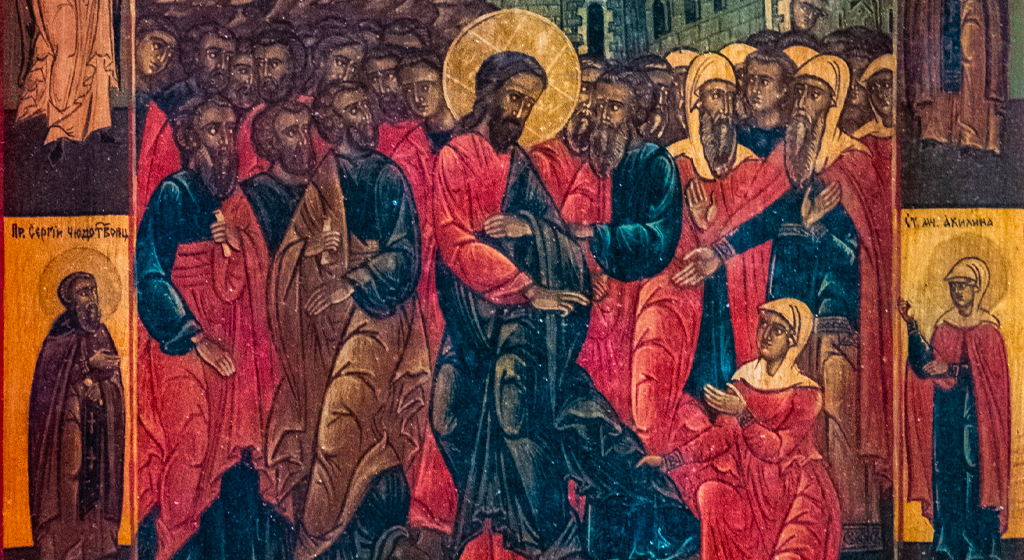Memory of the Poor
Reading of the Word of God
Alleluia, alleluia, alleluia
This is the Gospel of the poor,
liberation for the imprisoned,
sight for the blind,
freedom for the oppressed.
Alleluia, alleluia, alleluia
Genesis 12,1-9
Yahweh said to Abram, 'Leave your country, your kindred and your father's house for a country which I shall show you; and I shall make you a great nation, I shall bless you and make your name famous; you are to be a blessing! I shall bless those who bless you, and shall curse those who curse you, and all clans on earth will bless themselves by you.' So Abram went as Yahweh told him, and Lot went with him. Abram was seventy-five years old when he left Haran. Abram took his wife Sarai, his nephew Lot, all the possessions they had amassed and the people they had acquired in Haran. They set off for the land of Canaan, and arrived there. Abram passed through the country as far as the holy place at Shechem, the Oak of Moreh. The Canaanites were in the country at the time. Yahweh appeared to Abram and said, 'I shall give this country to your progeny.' And there, Abram built an altar to Yahweh who had appeared to him. From there he moved on to the mountainous district east of Bethel, where he pitched his tent, with Bethel to the west and Ai to the east. There he built an altar to Yahweh and invoked the name of Yahweh. Then Abram made his way stage by stage to the Negeb.
Alleluia, alleluia, alleluia
The Son of Man came to serve,
whoever wants to be great
should become servant of all.
Alleluia, alleluia, alleluia
In the confusion and dispersion of peoples, the Lord never abandons human beings. If each people had carved out a land with well-defined borders, with its own language, God instead calls Abraham to leave his land, his homeland and his home. Salvation history, Abram's history with God, begins with an exodus. The sacred author emphasises God's command: "Go from your country ... to the land that I will show you. Get out of your land ... to the land that I will show you." It is only by heeding the Lord's invitation to go out from one's own borders that one can receive the blessing, that is, the life of God, and be a source of blessing for others. With the story of Abram, the Bible seems to say that it is in the renunciation of listening only to oneself and one's own traditions that one can welcome the universal vision of life and the world. In fact, by obeying the Word of God, Abram left his land, became the principle of unity and life for the whole world. He is the father of believers, of all those who choose to listen to God and obey his Word. To listen to the Lord is to set out on new paths. Abram's faith is concrete, it is made up of life in the midst of a people, of encounters, of stages towards the promised land, the land of Canaan (as Palestine was called at that time). But even with the entry into the promised land, the attitude of seeking and listening to the Lord is not extinguished. God appears to Abram precisely when he arrives in the land of Canaan and renews the promise to him. And Abram needs to be reminded that God is always with him. Such remembrance, which is the heart of the believer's life, frees Abraham and each of us from the slavery of idols.
